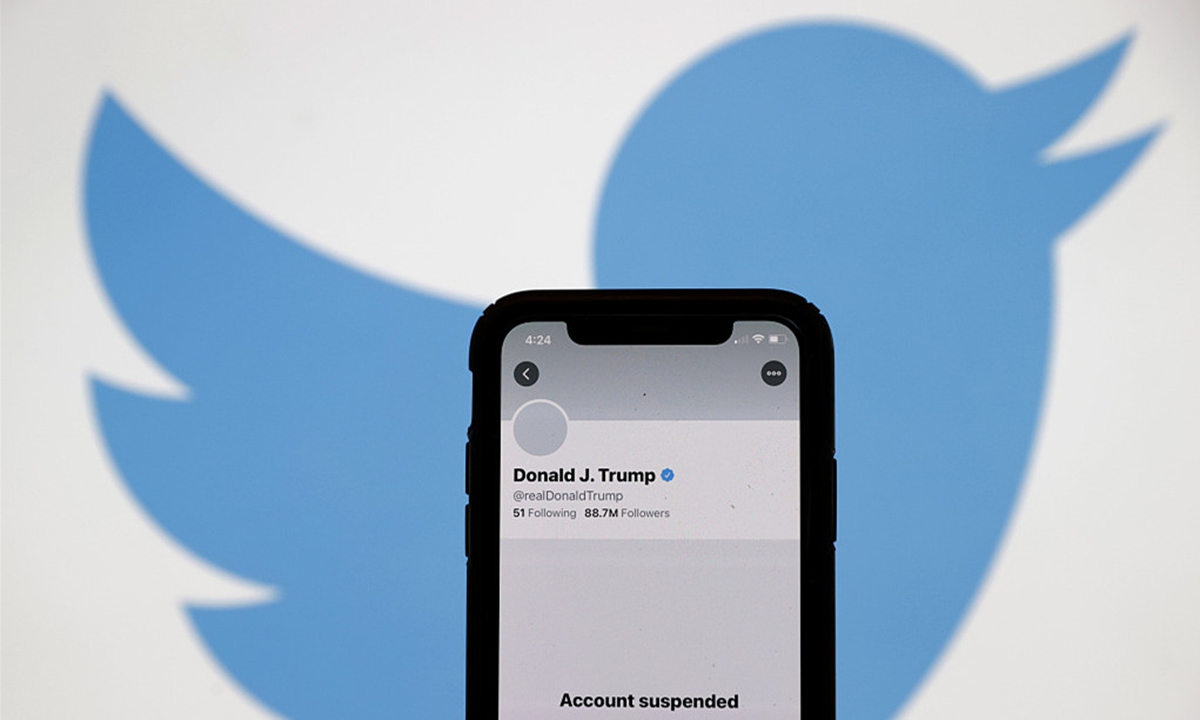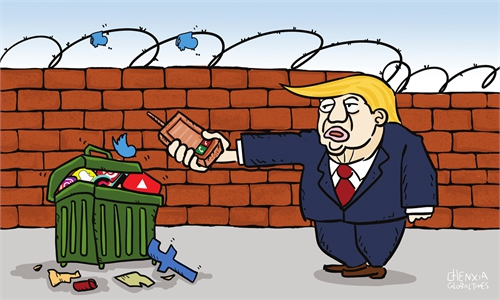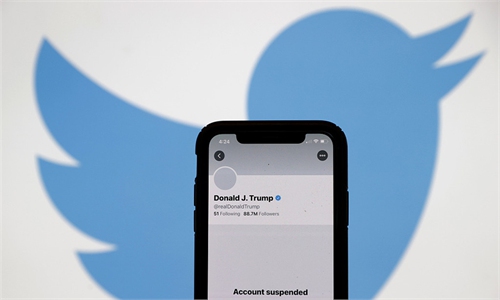
Trump Twitter account Photo: VCG
European leaders including German Chancellor Angela Merkel and French Finance Minister Bruno Le Maire emphasized the necessity of strengthening regulations on big tech after US President Donald Trump was banned by social media platforms like Facebook and Twitter.Merkel regards the complete closing down of the accounts of the US president as "problematic," and she thinks "rights like the freedom of speech can be interfered with, but by law and within the framework defined by the legislature - not according to a corporate decision," according to Steffen Seibert, Merkel's chief spokesman, at a regular news conference in Berlin Monday.
What these European leaders like Merkel care is not whether Trump is allowed to speak on social platforms or whether his accounts are shut down or not. They are concerned with who owns the power to ban Trump and in what way. They think the decision to delete remarks and close down accounts that incite and glorify violence should be in the hands of the government, rather than the management of private companies.
Based on their remarks and suggestions, lawmakers should pass a resolution to regulate the boundaries of free speech. Companies like Twitter can only delete remarks and suspend accounts that cross the line after relevant authorities decide to remove them based on the resolution.
Who has the power to regulate online content? What rules should it follow to do this? Can the rules be applicable to all countries? There are divergences among Western countries over these questions.
The fact that Trump was silenced on social media platforms shows us the true face of US freedom of speech, which only protects capitalists' free speech. The social platforms that allow people to speak on are built by capitalists. They have the right and freedom to decide who must shut up. The US freedom of speech is not an indiscriminate guarantee that every person can speak.
Some in the West are now worried that internet giants have too much power. This is like shooting themselves in the foot. The problem that the US and the West face is not how much power the internet giants own; but for a long time they have not effectively managed the internet due to a wrong understanding. The West does not have whole sets of solutions to manage the internet.
When the internet started to spread to the world in the 1990s, what Western countries talked about the most was internet freedom. And what does freedom stand for? It means to prevent the government from controlling the internet or deleting content. The West believes that people should be able to express their opinions freely and people's rationality and position should be trusted. When other countries took actions to regulate online remarks, they were criticized for lack of freedom. China in particular. As a matter of fact, the Chinese government is often criticized for managing content on the internet.
Now Western countries face their own problems. They have found that their systems cannot bear such online freedom as well. As such, they have now started to propose solutions to regulate these specific behaviors. Now is time for them to discuss how to reach a common standard for the management of internet contents, and how to reach a specific practical mechanism that can be accepted by all parties in the world.
Unlike the US, European countries now advocate strong supervision and regulation on big tech companies. This is because there are no such large technological companies in Europe. All policies have multiple attributes. From a certain perspective, many European internet management policies are protective. There will be complicated, long-term and comprehensive competition between the US and Europe in terms of internet governance. It is unlikely that the two sides will achieve any result in the short run.
The author is professor at the School of International Relations and Public Affairs of Fudan University. opinion@globaltimes.com.cn



